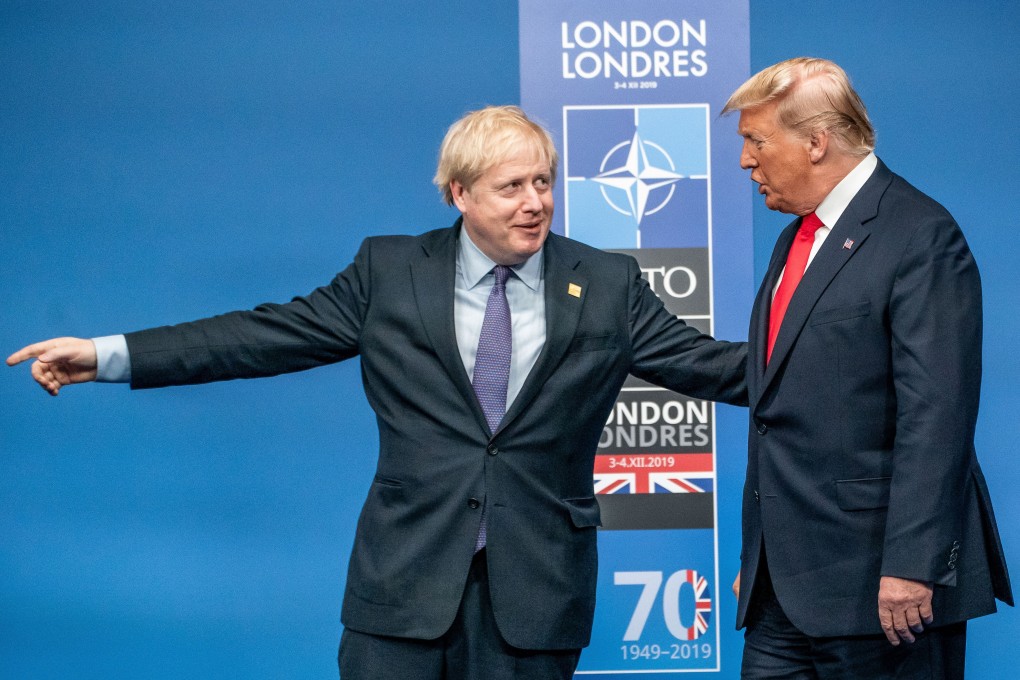Advertisement
Trump vs Biden: how the US election result could influence Brexit talks
- If Donald Trump wins a second term, Boris Johnson is more likely to feel emboldened to plump for no deal with the EU. Joe Biden, however, has long been opposed to the UK’s departure from Europe
Reading Time:3 minutes
Why you can trust SCMP

As trade negotiations between the European Union and Britain come to a head this month, events more than 5,500km away in Washington may be as important as those in Brussels and London. In deciding whether to risk a no-deal Brexit outcome or drive harder for a breakthrough agreement, British Prime Minister Boris Johnson is anxiously awaiting this week’s US presidential election result.
If US President Donald Trump wins re-election against the odds, Johnson may well interpret that as vindication that, with Brexit at least, he is on the right side of history. Trump, who came to power in 2016, the same year as the Brexit referendum, has been perhaps the most outspoken world leader in favour of Britain’s departure from the EU.
If the mercurial president wins a second term, Johnson is more likely to feel emboldened to plump for no deal with the EU, not least as a US-UK trade agreement may become an early priority of a re-elected Trump administration.
Advertisement
Such an agreement would be a significant victory for both Johnson and Trump. For the British prime minister, it would give some credence to his aspirations for a new “global Britain” in a context where the nation’s relationship with the world’s other superpower, China, has eroded badly since the pandemic began. A trade deal would also be a boon for Trump, who is criticised in many quarters for being an anti-globalisation, protectionist president.

10:08
Final US presidential debate for Trump and Biden covers Covid-19, China and ‘thug’ Kim
Final US presidential debate for Trump and Biden covers Covid-19, China and ‘thug’ Kim
If, however, Joe Biden wins the election, Johnson could have more to lose than any world leader. This is not because Biden is anti-British; on the contrary, he was, for instance, a staunch supporter of London over the 1992 Falklands war with Argentina, which divided the Reagan administration despite the latter’s admiration of then British prime minister Margaret Thatcher.
Advertisement
Advertisement
Select Voice
Select Speed
1.00x
